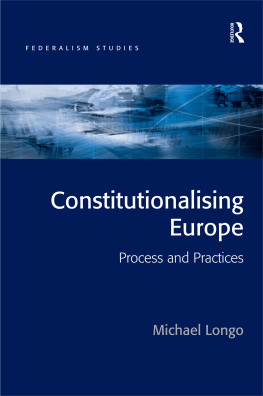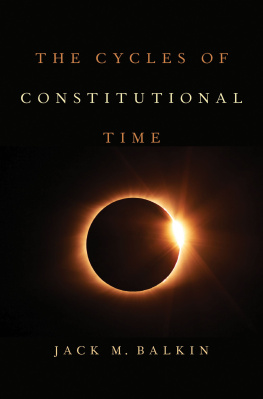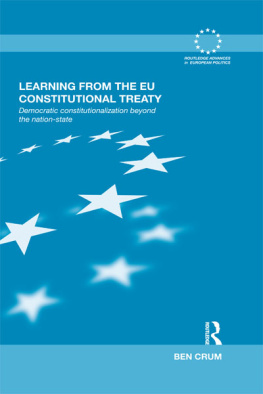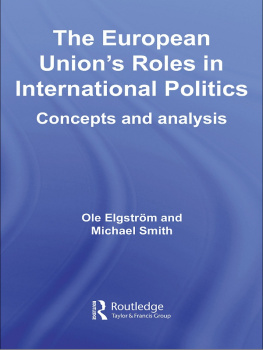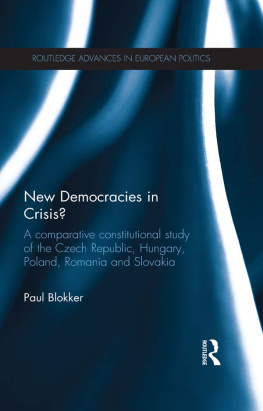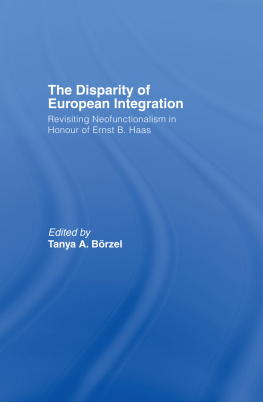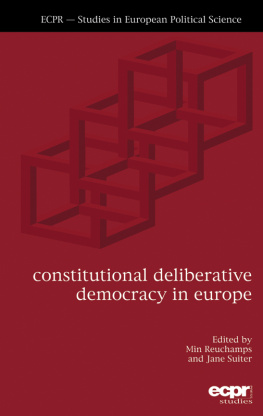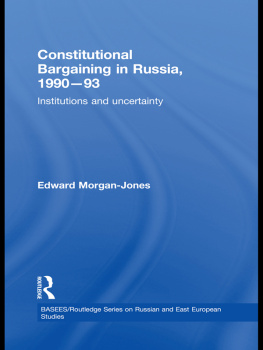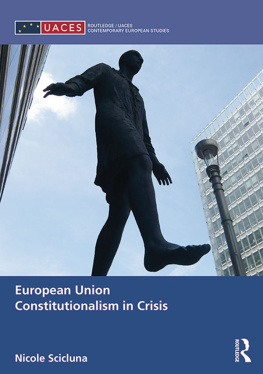CONSTITUTIONALISING EUROPE
First published 2006 by Ashgate Publishing
Published 2016 by Routledge
2 Park Square, Milton Park, Abingdon, Oxon OX14 4RN
711 Third Avenue, New York, NY 10017
Routledge is an imprint of the Taylor & Francis Group, an informa business
Copyright Michael Longo
Michael Longo has asseted his right under the Copyright, Designs and Patents Act, 1988, to be identified as the author of this work.
All rights reserved. No part of this book may be reprinted or reproduced or utilised in any form or by any electronic, mechanical, or other means, now known or hereafter invented, including photocopying and recording, or in any information storage or retrieval system, without permission in writing from the publishers.
Notice:
Product or corporate names may be trademarks or registered trademarks, and are used only for identification and explanation without intent to infringe.
British Library Cataloguing in Publication Data
Longo, Michael (Andrew)
Constitutionalising Europe: processes and practices.
(Federalism studies)
1.Constitutional law European Union countries
I.Title
342.24
Library of Congress Cataloging in Publication Data
Longo, Michael (Andrew)
Constitutionalising Europe: processes and practices/by Michael Longo.
p. cm -- (Federalism studies)
Includes bibliographical references and index
1. Constitutional law -- European Union countries. I. Title: Constitutionalizing Europe.
II. Title. III. Series.
KJE4445.L66 2005
342.24--dc22
2005030377
ISBN: 9780754646983 (hbk)
CONTENTS
Bibliography
Index
Series Editor: Sren Dosenrode
The end of the Cold War profoundly altered the dynamics between and within the various states in Europe and the rest of the World resulting in a resurgence of interest in the concept of federalism. This shift in balance has been further fuelled by the increase in the number of conflicts arising from the disaffection of the diverse ethnic or religious minorities residing within these states (e.g. Sudan, Iraq). Furthermore, globalization is forcing governments not only to work together, but also to reconsider their internal roles as guarantors of economic growth, with regions playing the major part.
It is the aim of the series to look at federal or federated states in historical, theoretical and comparative contexts. Thus it will be possible to build a common framework for the constructive analysis of federalism on the meta-level, and this, in turn, will enable us to identify and define federal tradition traditions, and develop the theoretical.
This unique and ground-breaking new series aims to promote a complete and indepth understanding of federalism by collectively bringing together the work of political scientists, lawyers, historians, economists, sociologists and anthropologists, and, with this in mind, contributions are welcomed from authors in all of these disciplines. But whereas the federal approach is the crank of the series, it does not mean, that contributions must adhere to the federal approach critical contributions are welcome too.
Also in the series
Approaching the European State
Edited by Sren Dosenrode
ISBN 0 7546 4244 5
EU constitutional development is, of course, a subject that has attracted worldwide attention in the past few years. This is not to imply that the subject is new. Academic writers have been contributing publications in this field for almost two decades. Many of those publications are cited in the bibliography of sources at the end of this text. My hope is that my book may build upon the scholarly literature from which I have received inspiration.
The process of constitutionalisation has now reached a dramatic phase with the rejection by voters in France and The Netherlands of the Constitutional Treaty. The period of reflection necessitated by that rejection might still offer a much-needed opportunity for policy makers and citizens to reflect upon the values that underpin European integration and to think about the sub-national, national and supranational developments transforming governance, interests and preferences in the EU. The significance of these considerations is by no means confined to the resolution of the constitutional problem associated with the rejection of the Treaty. Their salience will transcend the outcome of the current constitutional deliberations. There is a need to build on existing knowledge and learning if the material and ideational promises of European integration are to be fully realised into the future.
Notwithstanding the importance of the debate surrounding the Constitutional Treaty, I therefore view the Treaty as a single episode within the wider process of constitution building. Those who pick up this book thinking that it provides a step-by-step account of the events and developments immediately leading up to and following the Convention on the Future of Europe will be disappointed. So too will those who expect to find in this book the first in the new Federalism Studies series an uncritical adherence to the federal approach. This is not to say that the Constitutional Treaty is ignored or that federalism is not given the attention it deserves, along with other competing theories. A contextual, inclusive approach is preferred.
My intention in writing this book was to provide a comprehensive, wide-ranging and lasting analysis of the process of constitutionalisation and the factors impacting on that process. I sought to do this by reviewing and assimilating sometimes-disparate theoretical strands within an inclusive theoretical framework that drew from theories and empirical research of both law and political science and the methods employed by each discipline to understand the processes of European integration. I set out to demonstrate and substantiate the arguments for and against constitutionalisation from multidisciplinary and comparative perspectives, the rationale for such an approach being that reliance on a single discipline delivers only a partial understanding. From this position, synthesis appears attainable.
There are numerous people who have provided support and encouragement throughout this project. None more so than Philomena Murray, who provided both critical comments and thoughtful suggestions. Many thanks also to Brian Galligan, Elizabeth Meehan, Philippe Schmitter and colleagues at Victoria University. Needless to say, errors and omissions are mine alone. In addition I would like to thank the European University Institute for allowing me to use their excellent library facilities.
On a personal note, my family deserves a special mention: Doreen, Elysia and Andrew for putting up with the many absences during the writing of this book; Francesco and Antonina, my parents, to whom I dedicate this book.
Michael Longo
Melbourne
Chapter 1
Introduction
This book studies the constitutional development of the European Union (EU). It critically examines the current constitutional arrangements of the EU and the challenges confronting its further development: the effects of EU membership and institutions on EU constitution building; the impediments to constitutionalisation; the need for a formal, documentary constitution and its relationship to legitimacy. It presents an analysis of the dynamic institutional interactions, processes and practices of EU governance that have generated constitutional change. This book argues that EU constitutional development is a consequence of such inter-institutional processes and practices, which transform Member State interests and preferences towards constitutionalisation.

